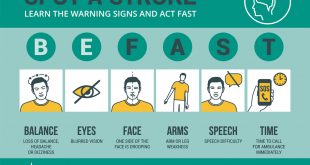By Dr. Noël Crosby, Au.D.


The Prevalence of Diabetes and Hearing Loss
Diabetes, particularly Type 2 diabetes, has become alarmingly common. It is characterized by the body’s inability to regulate blood sugar levels effectively. In recent years, research has illuminated a strong correlation between diabetes and hearing loss. Studies show that individuals with diabetes are more likely to experience hearing impairment compared to those without the condition.
The Role of Blood Sugar Control
One key factor in the relationship between diabetes and hearing loss is blood sugar control. High blood sugar levels can cause damage to blood vessels and nerves throughout the body, including those in the inner ear. The inner ear is responsible for translating sound vibrations into electrical signals that the brain can interpret. Damage to this delicate system can lead to hearing loss.
Inflammation and Oxidative Stress
Diabetes often triggers inflammation and oxidative stress throughout the body. These factors can have a detrimental effect on the auditory system. Chronic inflammation and oxidative stress can damage the hair cells in the inner ear, which are vital for transmitting sound signals to the brain. As these cells deteriorate, hearing loss can occur.
Neuropathy and Hearing Loss
Diabetic neuropathy, a common complication of diabetes, can also contribute to hearing loss. This condition affects the nerves throughout the body, including those responsible for transmitting auditory information to the brain. When these nerves are damaged, it can lead to difficulty in hearing and understanding sounds.
Medications and Hearing Loss
Some medications used to manage diabetes may have side effects that affect hearing. While these cases are rare, it’s essential to be aware of the potential risks. Individuals with diabetes should discuss their medication options with their healthcare providers, especially if they notice changes in their hearing.
Preventive Measures
Understanding the link between diabetes and hearing loss emphasizes the importance of diabetes management. Proper blood sugar control through diet, exercise, and medication can reduce the risk of hearing impairment. Regular hearing screenings are also advisable for individuals with diabetes to detect any issues early.
The connection between diabetes and hearing loss is a complex web of factors, including blood sugar control, inflammation, neuropathy, and medication side effects. Recognizing this link is crucial for individuals living with diabetes, as it highlights the importance of managing the condition effectively. Through proper diabetes management and regular hearing screenings, the risk of hearing loss can be minimized. Diabetes may impact various aspects of health, but with awareness and proactive care, its impact on hearing can be mitigated, ensuring a better quality of life for those affected.
Advanced Hearing Solutions
Using the latest and most sophisticated technology, we determine if you have hearing loss–and, if you do, we determine the degree and type of hearing loss. If your hearing loss requires medical or surgical intervention, we can refer you to a physician (otologist or neurologist) for appropriate treatment. If your type of hearing loss can best be treated with the use of hearing aids and/or other assistive listening devices (which is true in the great majority of cases), we can select any of a wide range of hearing devices and custom fit them to your ear, programmed to augment your hearing at those frequency levels where your hearing loss is greatest.
Call Advanced Hearing Solutions today at (941) 474-8393.
 Southwest Florida's Health and Wellness Magazine Health and Wellness Articles
Southwest Florida's Health and Wellness Magazine Health and Wellness Articles

